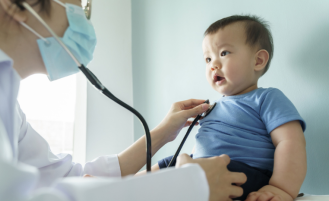Preparing Older Adults for Emergencies
For those who are older, preparing for a disaster may be even more important than for the younger population, especially if there are any physical limitations. By planning ahead, you can avoid the taxing possibility of long lines for food, water and medicine.
Remember to assemble a good supply of critical items—enough to last up to three days. If you have a home healthcare service, make plans now with these providers. It is likely that home health aids will not be able to reach you for a period of time, so a backup plan is crucial. Talk to family members and trusted neighbors, and enlist volunteers to help you during a crisis. Provide these helpers with a spare copy of keys to your front door, and be sure to ask for the specific help you will need.
Learn how to shut off your gas, electricity and water. Post a piece of paper with these instructions somewhere prominent—in a crisis, it will make this process go more smoothly for you or a volunteer.
Many older adults have grandchildren living with them or visiting often. While these young ones should also be provided for in your emergency preparedness plans, they can also be a source of help. For example, grandchildren can test smoke detectors in your home by using a broom handle to push the test button. Or an older child can draw a floor plan of your home and plan evacuation routes for you in the event of a disaster.
Since evacuation to a Red Cross shelter is a possibility in a disaster situation, stock portable necessary items in a disaster kit and label it with your name. Also label any other equipment you need to be mobile, such as a cane, walker or wheelchair. If you have a pacemaker, include its style and serial number with your emergency kit. Medical insurance and Medicare cards, a list of your physicians and a list of your prescriptions (including dose and frequency) should also be included. Don’t forget to include a spare pair of eyeglasses and batteries for hearing aids, if applicable. Designate an out-of-town family contact, and let him or her know where you are going if you have to be evacuated.
While it's normal to feel overwhelmed and helpless when contemplating possible disasters and other dangers, preparation can be key to successful coping. But if your sad or anxious feelings don’t go away, or are so intense that they continually interfere with your daily life, seek the help of a mental health professional.








